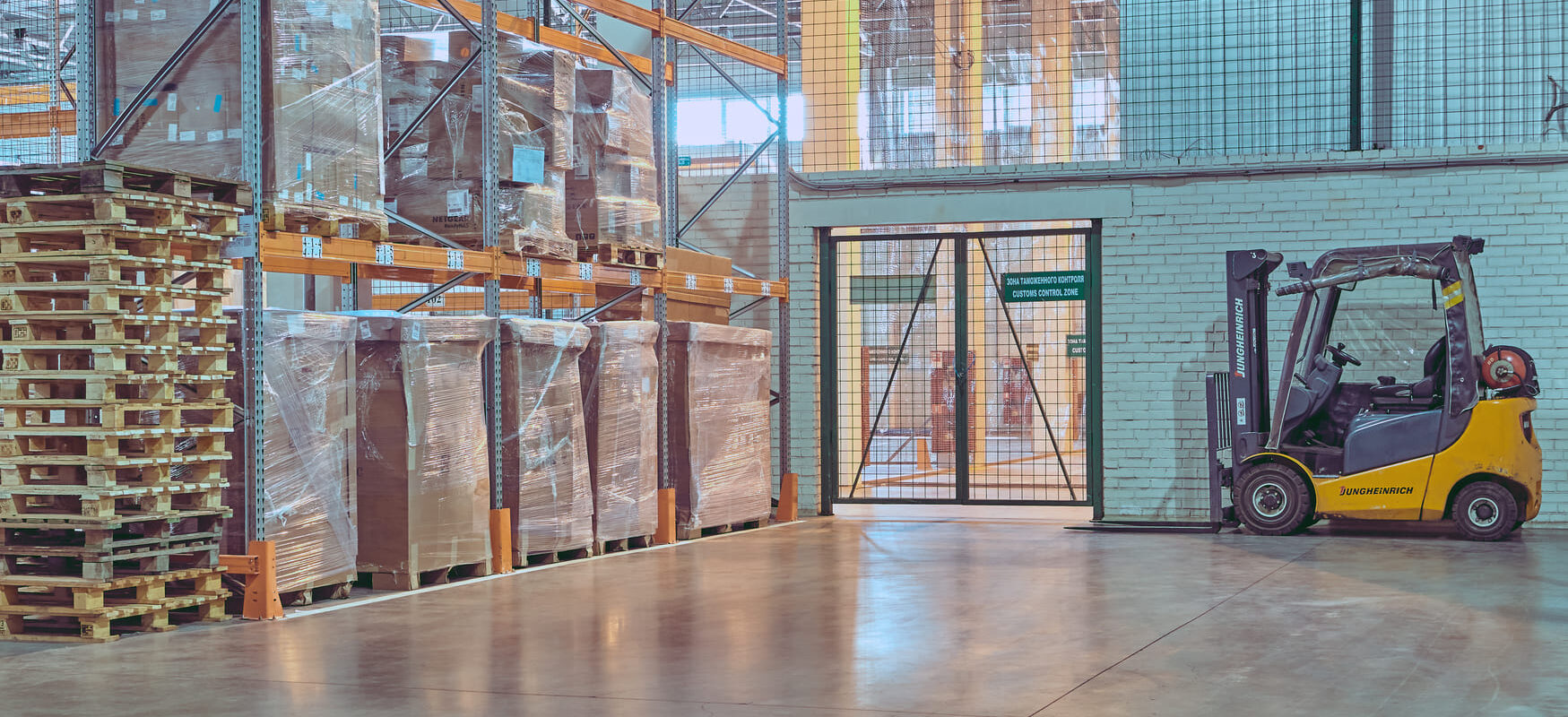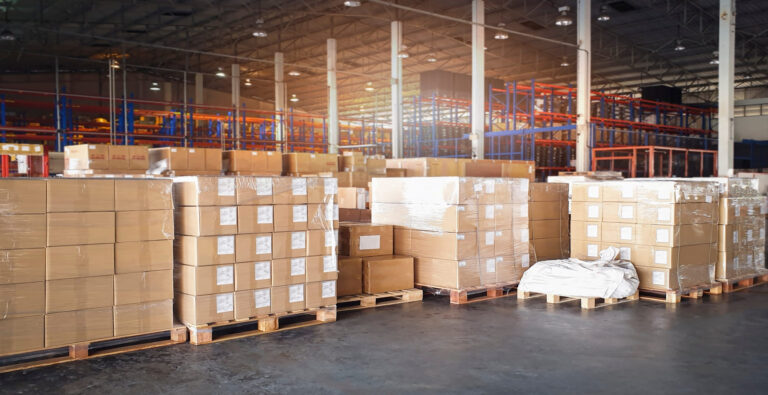Bonded Warehousing Solutions: Reduce Duties & Streamline Imports

Bonded warehousing solutions allow importers to store goods without upfront duty payments, effectively creating duty-free storage that boosts cash flow and streamlines the import process. By using a bonded warehouse – a secure facility under customs supervision – companies can defer taxes and tariffs on imported goods until those goods are released for domestic sale. This means immediate cost savings and flexibility: you don’t pay import duties until you actually need to, which can drastically improve cash flow and optimize your supply chain.
Modern global trade is full of challenges like high import fees and complex regulations. Bonded warehouses offer a solution by serving as duty-free zones for your inventory. In this post, we’ll explain exactly what bonded warehousing is, how it works, and why it’s a smart strategy to reduce duties and streamline imports. You’ll learn the key benefits, understand the differences from other storage options, and see how to leverage bonded warehousing for your business. Let’s dive in.
What Is Bonded Warehousing? Definition & Meaning
A bonded warehouse is essentially a secure storage facility where imported goods can be kept without immediately paying customs duties or taxes. In bonded warehousing, goods are considered under a customs “bond” – they are under government supervision (often sealed or closely monitored by customs officials) while in storage. Duties and tariffs are deferred and only become due when the goods leave the warehouse for domestic use. If the goods are re-exported or otherwise leave the country from the warehouse, no import duty is paid at all.
In other words, bonded warehousing provides a legal way to store imports duty-free until you’re ready to handle the tax obligations. This system is widely used by import/export businesses to improve cash flow. For example, a company can import a large batch of products and store them in a bonded facility for months or even years (in the U.S., up to 5 years is allowed). During that time, the company pays no import taxes on those goods. Only when they decide to sell into the domestic market do they pay the required duties – and for any portion that gets re-exported or remains unsold, they might never have to pay duties at all.
Key features of a bonded warehouse include:
- Duty deferral: Pay import duties later, when goods are withdrawn for sale, instead of upfront at the port.
- Customs supervision: The warehouse is licensed by customs authorities and operates under their oversight, ensuring no goods leave without proper clearance.
- Long-term storage: Goods can often be stored for extended periods (e.g. 5 years in U.S., unlimited in some jurisdictions) under bond.
- Secure facility: Bonded warehouses have high security and inventory controls (often required by customs), minimizing theft or loss.
- Possibility of processing: Depending on local laws, while in bond goods can be sorted, relabeled, or repackaged (minor operations that don’t substantially change the product) under customs supervision.
By definition, “bonded” means a guarantee or bond is in place – the warehouse operator typically posts a customs bond (a financial guarantee to the government) to cover the duties of goods stored. This protects customs authorities: if something happens or goods are improperly released, the government can recover the owed duties via the bond.
Bonded warehousing is invaluable for goods with high tariffs or quotas. For instance, imported alcohol, tobacco, luxury electronics, or pharmaceuticals often incur steep duties. Storing these items in a bonded warehouse lets the importer delay payment until there’s an actual sale or demand, or avoid payment altogether if the goods are re-exported or returned.
How a Bonded Warehouse Works
In practice, operating a bonded warehouse involves these steps:
1. Obtaining Customs Approval
Before goods can be stored, the warehouse operator must secure authorization from customs authorities. This involves:
- Submitting an application detailing the warehouse’s location, intended use, and security measures.
- Providing documentation, such as insurance details, safety certifications, and facility blueprints.
- Specifying the type of goods to be stored and whether the warehouse will be private (for a single company) or public (open to multiple businesses).
2. Receiving and Storing Goods
Once approved, imported goods can be moved into the warehouse under customs supervision. Key features of this stage include:
- Deferred duty payments – No taxes, tariffs or import duties are due while bonded stock remains in the warehouse.
- Controlled storage – Goods must be securely stored and tracked to prevent unauthorized removal.
- Limited processing allowed – Some bonded warehouses permit activities like repackaging or labeling under customs oversight.
3. Managing Inventory & Fulfillment
Bonded warehouses often serve as distribution hubs for international trade. Depending on their purpose, they may:
- Store goods long-term while awaiting market demand.
- Process and fulfill orders for e-commerce businesses before duties are paid.
- Prepare goods for re-export without incurring local taxes.
4. Final Disposition of Goods
When goods leave the warehouse, the importer must decide:
- Domestic release – Pay applicable duties, tariffs, and taxes before selling locally.
- Re-export – Ship to another country without paying local import fees.
Customs authorities monitor all movements to ensure compliance.
Bonded vs. Non-Bonded Warehouses: What’s the Difference?
| Feature | Bonded Warehouse | Non-Bonded (Regular) Warehouse |
| Customs Supervision | Strictly regulated by customs authorities | No customs oversight |
| Duty and Tariff Payments | Duties and tariffs deferred until goods are released | Duties and tariffs paid upfront upon import |
| Goods Allowed | Only imported goods under customs control | Any goods (domestic or imported) |
| Processing | Limited (e.g., repackaging, labeling) | Full manufacturing/assembly allowed |
| Use Cases | International trade, duty deferral | Domestic storage, general inventory |
| Security | High (customs-secured) | Standard warehouse security |
Key Takeaways:
- Bonded warehouses are ideal for businesses involved in import/export, allowing duty deferral and re-export flexibility.
- Non-bonded warehouses are better suited for domestic storage where duties have already been paid.
Types of Bonded Warehouses
Bonded warehouses come in a few different forms to fit various needs. The exact categories can vary by country, but generally, these are the common types of bonded warehouses:
- Public Bonded Warehouses: Operated by third-party logistics providers (3PLs) or warehouse companies, these facilities serve multiple clients. Any importer can pay to store goods in a public bonded warehouse. The operator is responsible for maintaining the bond and managing compliance for all stored goods. This is great for small and medium businesses that don’t have their own warehouse – you essentially rent space in a customs-controlled facility.
- Private Bonded Warehouses: Owned and used by a single entity (often a large importer or manufacturer) for their exclusive goods. A private company might bond its own warehouse to store its imports duty-free. Only that company’s merchandise is in the facility. This requires significant volume to justify, but gives the company full control.
- Customs Bonded Warehouses: In some cases, government agencies (like a country’s customs authority or port authority) run bonded warehouses. Importers can use these, but the facility is managed by the state. This can ensure strict compliance and is often used for sensitive or high-security goods.
- FTZ Bonded Warehouses : These aren’t called “warehouses” per se, but function similarly. A free trade zone (FTZ) or free port is a designated area, often near a port or airport, where goods can be imported without formal customs entry and duties. Within an FTZ, companies might have warehouse facilities. Think of it as a large-scale bonded area that can even allow manufacturing. (We’ll detail differences shortly, but it’s a type of bonded storage concept.)
- Specialized Bonded Facilities: Many bonded warehouses specialize in certain goods or storage conditions:
- Bonded cold storage: warehouses equipped for frozen or refrigerated goods (foods, pharmaceuticals) under bond.
- “Wet” bonded warehouses: for alcoholic beverages or other liquids that are subject to tax, often used in spirits industry so importers age or store liquor without paying duties until bottling or sale.
- Bonded hazardous materials storage: facilities licensed to hold chemicals, explosives, or other dangerous goods under customs control (with extra safety regulations).
- Bonded yards or tanks : for things like bulk commodities (fuel, grain) stored in bonded tanks or silos.
Regardless of type, all bonded warehouses share the trait of operating under customs rules. Businesses should choose the type that fits their needs: public bonded warehouses for flexibility and low volume, private for high volume proprietary use, or specialized ones if they have unique goods (like temperature-sensitive items).
Key Benefits of Bonded Warehousing Services
Using bonded warehousing yields several strategic advantages:
- Duty & Tariff Deferral: The primary benefit is financial. Import duties and tariffs are postponed until goods are withdrawn for sale. This deferral can be months or years, enabling importers to pay taxes at the point of sale rather than upfront. It also allows businesses to import when duty rates are high and sell when/if rates fall, effectively hedging tariff risk.
- Cash Flow Optimization: Delaying duties strengthens cash flow. With duties unpaid, capital stays within the business longer, improving liquidity and working capital. In tight credit markets, this can be a significant competitive edge.
- Market Flexibility: Bonded storage gives companies breathing room to respond to market demand. Firms can hold goods until conditions are favorable (for example, waiting for peak season), avoiding forced discounting or loss. If demand shifts, goods can be re-exported without extra domestic duties.
- Inventory Buffer & Efficiency: For seasonal or just-in-time businesses, bonded warehousing acts as a strategic inventory buffer. It permits importing in bulk and releasing in stages, which helps balance inventory levels and prevent supply shortages.
- Value-Added Services: Under customs supervision, bonded warehouses often allow limited processing of goods. Many facilities offer inspection, repackaging, relabeling or minor assembly for products in bond. This can save time and cost by performing final prep steps before domestic release or re-export.
- Enhanced Security & Compliance: Because bonded warehouses are audited by customs, they typically have stringent security measures and inventory controls. This reduces theft or fraud risk and ensures legal compliance, which is critical for high-value or regulated items.
- Global Trade Advantage: Most bonded warehouses are located near major ports, airports or border crossings. This proximity speeds international supply chains, making it faster to import or export goods. In volatile trade environments (e.g. shifting tariffs or supply routes), having inventory in bond at strategic hubs is a major logistical benefit.
Industries & Use Cases for Bonded Warehousing
Bonded warehousing is particularly valuable for businesses dealing in high-duty or high-value goods and complex international flows. Typical users include:
- Importers of High-Duty Goods: Companies that import products with heavy tariffs or taxes are prime candidates. Think of importers of alcohol and spirits, where duties and excise taxes are high; tobacco products; luxury goods like designer apparel, handbags, watches; consumer electronics (which can face import duties in some countries); and pharmaceuticals or chemicals that might have import levies. For these, deferring a large duty payment is a huge financial relief. For example, an electronics distributor can bring in $5 million worth of gadgets, store them bonded, and not pay perhaps $500k in duties until each item actually sells – dramatically improving their cash position.
- E-commerce and retail distributors: Companies selling to multiple countries can store inventory in bond to balance cross-border demand without repeated importations. Retailers can test new markets by moving stock in and out of bond as needed.
- Manufacturers Using Imported Inputs: Manufacturing companies that import raw materials, parts, or components can use bonded warehouses to hold those imports until needed in production. For instance, an auto manufacturer could import engines or electronics, keep them in a bonded facility near its factory, and only withdraw (and pay duty) as it pulls those parts for assembly. If production slows or plans change, the parts can even be re-exported or sold elsewhere duty-free. This way, the manufacturer isn’t paying duties on inventory that’s sitting idle.
- Trading companies and exporters: Businesses involved in international trade where goods land in one country but are destined for others love bonded warehouses. A classic case: a trading company might import goods from Asia into a U.S. bonded warehouse, then distribute some to Latin America and some to U.S. domestic buyers. For the portion that is re-exported to Latin America, they pay no U.S. duty – the warehouse was basically a transit hub. Drop-shippers and international distributors similarly use bonded facilities to break bulk shipments and redirect goods globally without double taxation.
- Seasonal Importers and Fashion Industry: Companies with cyclical demand (fashion, seasonal goods) rely on bonded warehousing to stockpile goods in advance and release them when sales peak.
- Small Businesses and Startups Going Global: Smaller businesses facing high tariffs or cash constraints can use bonded warehousing to manage costs and risk as they expand globally.
To sum up, any business that imports significant goods and faces import duties can likely benefit from bonded warehousing. It’s particularly valuable when you have uncertainty about sales timing or destination – the bond gives you flexibility. If you recognize your operations in any of the above, it’s worth considering bonded storage as part of your logistics strategy.
Bonded Warehouse vs. FTZ (Free Trade Zone)
A common comparison is between bonded warehouses and free trade zones (FTZs). Both allow duty deferral, but they operate differently:
- Bonded Warehouse: Governed by customs, where goods are subject to inspection and must go through normal customs entry when finally released. Duties/taxes are deferred until goods leave the warehouse. Storage time can be long (up to 5 years in the U.S. or unlimited in some countries). Goods can move between bonded warehouses or be sent to FTZs.
- Free Trade Zone: Designated areas (often near ports or airports) treated as outside the customs territory. Merchandise can enter FTZs without formal entry; duties are deferred (and may be reduced or eliminated) until goods enter the domestic market. FTZs typically allow manufacturing, assembly or other processing under looser customs controls. Goods can stay in an FTZ indefinitely without paying duties.
Advanced Bonded Warehousing Solutions
Traditionally, a bonded warehouse might just be a big building with customs locks. But in today’s logistics world, bonded warehousing has evolved. Advanced bonded warehousing solutions incorporate technology and specialized services to better serve businesses. Here’s what modern bonded warehousing can include:
- Climate-Controlled Bonded Storage: If you have temperature-sensitive goods (like frozen foods, vaccines, or fine art), there are bonded warehouses with cold storage and climate control capabilities. This means you can get the same duty deferral benefits for perishable or delicate items, without compromising on storage conditions. For example, bonded cold warehouses are used for seafood importers: fish can be stored frozen under bond until distribution, ensuring quality and deferring import costs.
- Hazardous and High-Value Goods Handling: Some bonded facilities are equipped for hazardous materials (HAZMAT), they have the necessary safety systems to store chemicals, flammable goods, etc., under bond. Others specialize in high-security storage for valuables (precious metals, expensive electronics). These warehouses have enhanced security measures and insurance. By combining these features with bonded status, companies dealing in such goods get a one-stop solution (safe + duty deferred).
- Integrated Warehouse Management Systems (WMS): Modern bonded providers leverage software so clients have real-time visibility of their inventory in bond. Through a WMS dashboard, you can see how many units are in the bonded warehouse, flag which pallets to withdraw next, and even automate customs documentation when withdrawing goods. Integration with your own systems (ERP or fulfillment software) means using a bonded warehouse is nearly as seamless as a regular one. OLIMP, for instance, connects businesses to warehouses that provide digital inventory tracking, so you always know what’s in bond and what’s cleared.
- E-commerce Fulfillment in Bond: As mentioned earlier, some 3PL companies offer order fulfillment services from bonded warehouses. This is powerful for cross-border e-commerce. For example, you can store bulk inventory in a bonded facility in another country, and as e-commerce orders come in from local customers, the 3PL picks, packs, and ships directly from the warehouse. They’ll handle the duty payment for each package as it ships (often using simplified entry programs), meaning you essentially pay duties one order at a time. This merges the line between warehousing and direct distribution, all while keeping your unsold stock duty-unpaid.
- Automation and Robotics: A few cutting-edge bonded warehouses use automation (conveyors, robotic storage/retrieval systems) to improve efficiency. This is more common in large FTZ distribution centers, but some bonded storage facilities, especially in high-volume ports, have adopted automation to speed up handling. Faster handling = you can retrieve and release goods to market quicker when needed.
- Customized Bonded Solutions: Providers now tailor bonded warehousing contracts to business needs. Need a bonded area within a larger warehouse dedicated to you? That can be arranged (often called a “bonded section”). Need to transfer goods between bonded warehouses in different cities? Some networks allow bonded transfers (the bond follows the shipment). These custom solutions mean even if you have unique logistics flows, bonded warehousing can adapt.
In essence, bonded warehousing is no longer just a static storage option, it’s part of a sophisticated supply chain strategy. Providers like OLIMP vet warehouses that not only meet customs requirements, but also deliver on operational needs – whether it’s deep freeze storage, real-time tracking, or integration with fulfillment operations. By leveraging these advanced services, you get the best of both worlds: financial savings from duty deferral and top-notch logistics service.
Find a Bonded Warehouse Fast with OLIMP
Need a bonded warehouse near a port, airport, or border crossing? OLIMP connects you to a large network of customs-bonded facilities across North America-including Los Angeles, Miami, New York/New Jersey, Chicago, Houston, Toronto, and more. Simply enter your location or request details, and we’ll match you with available bonded warehouses fast.
Why Choose OLIMP’s Bonded Warehouse Network:
- Nationwide Coverage: Easily find bonded storage close to your import routes and final destinations.
- Faster Customs Processing: Many partner facilities have on-site brokers and proven clearance workflows.
- Flexible Terms: Short-term or long-term storage, scalable space, and seasonal capacity.
- Specialized Capabilities: Bonded cold storage, high-security environments, hazmat-approved options, and more.
OLIMP makes it easy to compare facilities and request quotes in one place. Our team can also guide you through paperwork, transfer into bond, and compliance steps.
Who We Support: Importers, exporters, manufacturers, food & beverage, pharma, electronics, retailers, and more.
Ready to Reduce Duty Costs & Streamline Imports?
Bonded warehousing lets you delay duties and taxes, manage inventory strategically, and stay compliant.
👉 Request a Quote today to get matched with the right bonded warehouse for your supply chain.
Frequently Asked Questions (FAQ) – OLIMP Warehousing
Q: What’s the difference between a bonded warehouse and a freeport?
- A bonded warehouse stores goods with duties deferred.
- A freeport is a tax-free zone near a port, often with extra business incentives.
Q: What is the difference between an FTZ and a private bonded warehouse?
- FTZ: Duty deferral or elimination.
- Private bonded warehous: Stores goods with duties unpaid until withdrawal.
Q: What are the disadvantages of a bonded warehouse?
Higher costs due to strict compliance, limited flexibility, and slower fulfillment than standard 3PLs.
Q: What is the difference between bonded warehouses and port warehouses?
Bonded warehouses differ from port warehouses in that they store imported goods under customs control without immediate duty payment, while port warehouses are typically used for short-term storage near ports without the same customs restrictions.
Q: How long can goods stay in a bonded warehouse?
It depends on the country’s regulations. In the United States, goods can typically remain in a customs bonded warehouse for up to 5 years from the date of import. In the European Union, the duration can be unlimited under the Union Customs Code (no explicit time limit, as long as conditions of the storage are met). Some other countries may allow 1, 2 or 3 years, sometimes extendable. It’s important to check local regulations, but in many cases, the storage period is quite generous (several years), allowing importers plenty of leeway.
Q: What kinds of goods are stored in bonded warehouses?
A wide variety! Common examples include: alcoholic beverages (wine, spirits) aging or awaiting distribution, tobacco products, luxury goods like designer fashion or watches, electronics and appliances, pharmaceuticals and perfumes, and bulk commodities like coffee or raw materials. Essentially, any imported goods that incur duties can be put in bond. Businesses especially use bonded warehouses for goods with high import taxes or those destined for re-export. Also, seasonal merchandise (holiday goods, fashion collections) often sit in bond until the season arrives.
Q: When do I have to pay duties on goods in a bonded warehouse?
You pay the import duties when you withdraw the goods from the bonded warehouse for domestic use or sale. If you never withdraw them for local consumption – for example, you re-export them or they remain unsold and are eventually destroyed under customs supervision – then you don’t pay any duties at all. Think of it as “postponing” the payment: as long as items are in bond, the payment is on hold. Once you decide to bring the items to market domestically, that’s when you settle the customs bill.
Q: How can I find a bonded warehouse near me?
The easiest way is to use a service like OLIMP’s warehouse finder. Bonded warehouses are often located near major ports, airports, or trade hubs. By using OLIMP’s platform (or contacting logistics providers in your area), you can identify facilities that offer bonded storage. Simply search for “bonded warehouse [Your City]” or use OLIMP’s location tool. OLIMP, for instance, has bonded partner warehouses across North America, so companies can quickly get matched to a nearby bonded facility that fits their needs. Always ensure the warehouse you choose is properly customs-certified and offers any special handling you might require (e.g. cold storage).
You may be interested in

Warehouse Solutions: Key Types and Benefits for Your Business
Warehouse solutions are critical components of any efficient supply chain. Warehouses provide the essential space and infrastructure to store and manage inventory, keeping goods moving smoothly from suppliers to customers. However, not all warehouses operate the same way. Different types of warehouse solutions – such as public, private, hybrid, automated, climate-controlled, fulfillment centers, bonded facilities, […]

Best 3PL Warehouse for Your TikTok Shop Fulfillment
TikTok Shop sellers often face sudden viral demand. A specialized 3PL (third-party logistics) partner helps by handling warehousing, order picking, packing, shipping, and returns. This article explains why TikTok sellers need dedicated TikTok fulfillment services and what features to look for in a TikTok fulfillment center. Why TikTok Sellers Need a Specialized 3PL Fulfillment Company […]

Omnichannel Logistics in the E-Commerce Era: Strategies to Stay Ahead
E-commerce growth has completely reshaped how supply chains operate. With customers shopping anytime, anywhere, from mobile apps to brick-and-mortar stores, businesses face mounting pressure to deliver faster, cheaper, and more seamlessly than ever. That’s where omnichannel logistics comes in. By unifying online and offline fulfillment, companies can build supply chains that keep pace with today’s […]
Ready to streamline your warehousing needs?
Request a quote today and discover how OLIMP's tailored solutions can optimize your operations